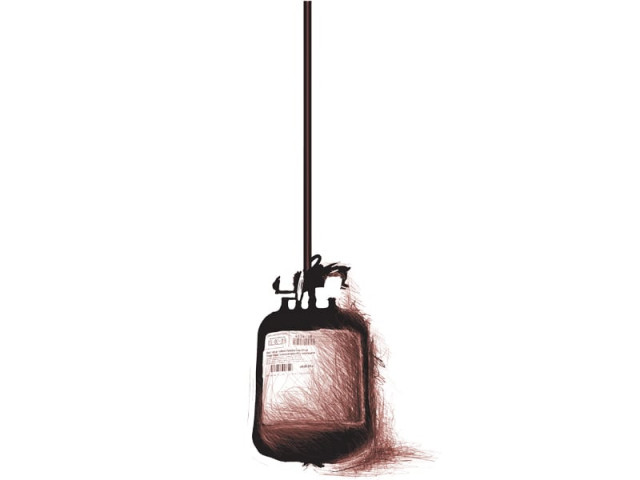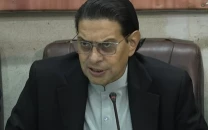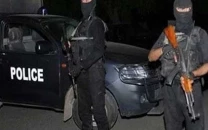World Blood Donor Day: As the number of patients rises, voluntary donations remain low
Unscreened transfusions, carried out most of the time, may spread infectious diseases.

Health experts have expressed their concern over the absence of a national-level voluntary blood donation programme to recruit and retain donors.
While talking to The Express Tribune in connection with the World Blood Donor Day observed every year on June 14, they also expressed dissatisfaction over blood transfusion practices in the country and the lack of quality control which they consider are the major factors behind the spread of infectious diseases such as hepatitis and HIV/AIDS.
Team leader blood safety and hepatitis for World Health Organistion (WHO), Dr Quaid Saeed said, “It is imperative that the national and provincial blood transfusion programmes develop their own mechanisms to encourage and retain blood donors and keep a regular supply of healthy blood for those in need.”
He said nearly 98% of blood donations in the country are by family members donating blood to relatives which is extremely discouraging. Currently, requirement for blood in the country is 3 to 4 million units of which less than half remains unfulfilled, he said.
The greatest demand for blood on a regular basis comes from patients who suffer from genetic disorders including thalassemia or haemophilia as their life is completely dependent on the availability of blood, disclosed Dr Saeed. This is followed by transfusions required by pregnant women, cancer patients or those undergoing surgeries and victims of accidents, terrorist attacks or natural disasters.
National Programme Manager National Blood Transfuison Programme Dr Hasan Abbas Zaheer said family donors cannot really be considered since they donate blood because they are forced to.
He said unfortunately only 60% of the donated blood is screened in the country, while the rest is transfused unscreened. Blood is screened only for three diseases, namely hepatitis B and C and HIV/AIDS, while to conform to international standards it should be screened for malaria as well. Zaheer said there is no credible data available on blood donation, transfusion or blood banks. There are some blood banks which operate from bathrooms, he said.
There are various myths due to which people are reluctant to donate blood, including non-professional blood transfusion practices, substandard blood banks and risk of communicable diseases. “No legislation can be effective in the presence of all these loopholes,” he said.
Reiterating the concerns about lack of blood donations, Consultant Haematologist at Shifa International Hospital Dr Ayesha Junaid said the hospital always faced blood shortages. “In the majority of cases male members are ready to buy blood instead of donating it even to their wives or mothers,” she added. “A number of blood banks fail to properly screen blood and sell it, besides this they also buy blood from drug users.”
Rawalpindi District Blood Transfusion Officer Dr Muhammad Farooq Khan said every month about 4,000 new blood donors are registered in the allied hospitals out of which 10 to 15 per cent are volunteers, which is insufficient.
The message doctors wish to convey on World Blood Donor Day is that half a litre of blood can help save as many as three people’s lives, therefore donate blood and become a hero.
Published In The Express Tribune, June 15th, 2012.



















COMMENTS
Comments are moderated and generally will be posted if they are on-topic and not abusive.
For more information, please see our Comments FAQ